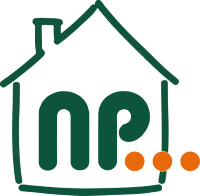
Hard, soft, tile or laminate – there are so many different kinds of flooring available today that it can be hard for landlords to decide which to go for.
Budget is obviously always a major factor and the overall look you are hoping to achieve will also always top your reasons for choosing one product over another.
But there are other factors to consider before making your choice, so here are a few of the main pros and cons of some flooring options:
*Carpet
Pros:
Soft on bare feet, warm, helps to insulate a room and reduces noise levels for any tenants living below. Comes at a variety of prices and can be cheap and easy to replace. You could have almost any colour, pattern or texture you wish for.
Cons:
Not suitable for all rooms in the house ie kitchen and bathrooms as they shouldn’t get damp. Can become dirty and spills can be hard to remove. Not ideal if small children or pets are in the property. Cheap carpet will wear. Some carpets may not be suitable for people with allergies as they can harbour allergens. Carpets are not always suitable if you are looking to achieve a sleek, contemporary look.
*Hardwood
Pros:
Hardwood flooring can be exquisite. If well cared for and maintained, it can really enhance the look of a room. Woods come in all manner of shades and finishes and can be re-sanded and re-stained. Good for people with allergies. They can be durable if well looked after. Can be a sustainable, eco option if you check the provenance of the wood.
Cons:
Hardwood can be an expensive choice. It does require care and maintenance and may therefore not be ideal for a rental property. Spills must be dealt with quickly as it will be damaged by excessive liquid. Hardwood can also be affected by extreme changes in heat and can swell and warp in high humidity. It can scratch easily. Some wooden flooring is unsustainable, so check its green credentials. As a natural product you have to expect a lack of uniformity.
*Stone
Pros:
Natural stone is very durable. It can look amazing as a background to any reception room, hall, kitchen or bathroom. If sealed properly it will tolerate water spills, leaks and even floods. It can be ideal for homes let to people with children or pets. It won’t harbour allergens as a carpet might.
Cons:
It will require regular sealing to ensure it stays well maintained and does not stain. As a natural product you have to expect a lack of uniformity. Some stone can chip easily. If you drop a glass or plate on it, expect the item to shatter and disperse shards very widely. Some polished stone can scratch.
*Tiles
Pros:
You can get the exact colour, texture and finish you are looking for. Tiles floors can be very chic and will offer a uniform look. They are ideal for rental homes with children and pets – or in situations where spillages might occur, as they can be mopped and won’t absorb the liquid. They can be very easy to clean, so can be suitable where low maintenance is required. Ceramic tiles are very resistant to high temperatures. Prices vary, but they can be a very affordable choice.
Cons:
Tiles are cold underfoot and will bring a cool ambience to a room rather than a warm one. They can crack and chip if something heavy is dropped on them. Tiles can also be slippery.
*Laminate
Pros:
A good option for a landlord on a budget. Easy to lay and to replace if necessary. Very durable ie resistant to scratches and dents and does not chip. Light spills can be mopped up easily. Available in a range of finishes. Another good option for those with dust mite allergies as dust can be kept at bay.
Cons:
Not ideal if there is a risk of leaks, floods or heavy moisture build up as it could be completely destroyed. It cannot be sanded or refinished and may be slippery. Laminate is very heavy on chemicals that are not environmentally friendly and careful disposal must be considered.
*Vinyl
Pros:
Available at a range of costs, depending on the specification – but again can be a good budget option for landlords. Suitable for any room where moisture might be an issue ie kitchens and bathrooms. Very easy to mop up stains and spillages and to keep clean. Good for areas of high footfall as it is durable. High specification vinyl can be soft and warm underfoot. It can be easier to install than some other kinds of flooring.
Cons:
It can ripple if not laid properly or moisture gets underneath. It can be dented or marked by sharp objects. Harmful chemicals are used in its manufacture. It is not biodegradable so disposing of it safely after use can be problematic – but many manufacturers are currently trying to address these issues.

